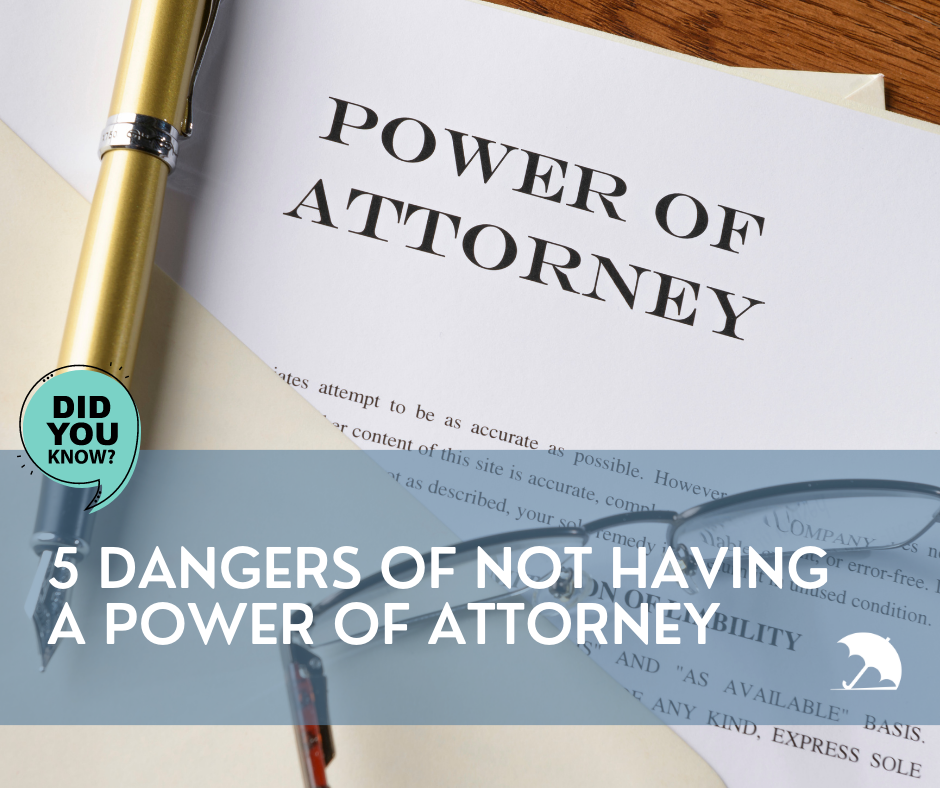Dangers of Not Having Power of Attorney
Estate planning is an important step in protecting you and your family from the financial side of medical emergencies and death. With all the documents that go along with estate planning, Power of Attorney is arguably the most important. This document allows someone else to act on your behalf with regard to your medical and financial decisions. Without it, your assets and fate could be at risk and left up to the mercy of the court to decide upon in a Guardianship proceeding. Here are a few of the many problems that can arise without a Power of Attorney:

Your Family Needing To Take on Guardianship
If you become mentally or physically incapacitated then your loved ones may have to be forced into guardianship to act on your behalf. This is true even for a spouse. Without proper Power of Attorney documents in place, this process can take months and cost several thousands of dollars. This can increase if other family members are noncompliant or challenge it, leading to hurtful family disputes.
Financial Problems
Power of Attorney also allows someone to keep up with your expenses on your behalf. They can pay bills, accounts, and mortgages. This can save a lot of issues, in the long run, avoiding any late fees, or foreclosures. It can also be crucial in cases where insurance is helping you out. If it is to lapse then you’re in even more trouble.
Nursing Home Bills and Medicaid Denial
With nursing homes ranging at around $6,000 per month, even one month of Medicaid ineligibility can result in a great financial burden. The Medicaid application process even with the right attorney requires a lot of records, signed documents, and other requirements to meet eligibility. If Medicaid does get denied, your children or loved ones could be personally liable for the nursing home bill unless they correctly held themselves out as your Power of Attorney.
Inability to Obtain Medical Records
A Power of Attorney should also include the ability for your appointed agent to take care of billing payments and to have access to medical records. This should be in compliance with HIPAA standards to work. Without this, not even a spouse can access the medical records to oversee treatment or care.
Inability to Transfer Assets if Necessary
In some circumstances, an estate planning attorney may recommend transferring assets such as homes or other large assets out of the name of an incapacitated person. This could be necessary for some processes such as asset protection while applying for Medicaid. This can also be necessary when the person is in the final stages of life. This can avoid long probate proceedings and avoid certain taxes that could occur by not doing it this way.
There are many unexpected circumstances that can prompt Power of Attorney. The good news is that these situations can be easily avoided by hiring an estate planning attorney, sometimes for less than a few hours. This can give you and your family the peace of mind it deserves to handle any unforeseen issues in the future that require Power of Attorney. It’s best to find someone who is a good fit for this role that can take care of you and your finances.
